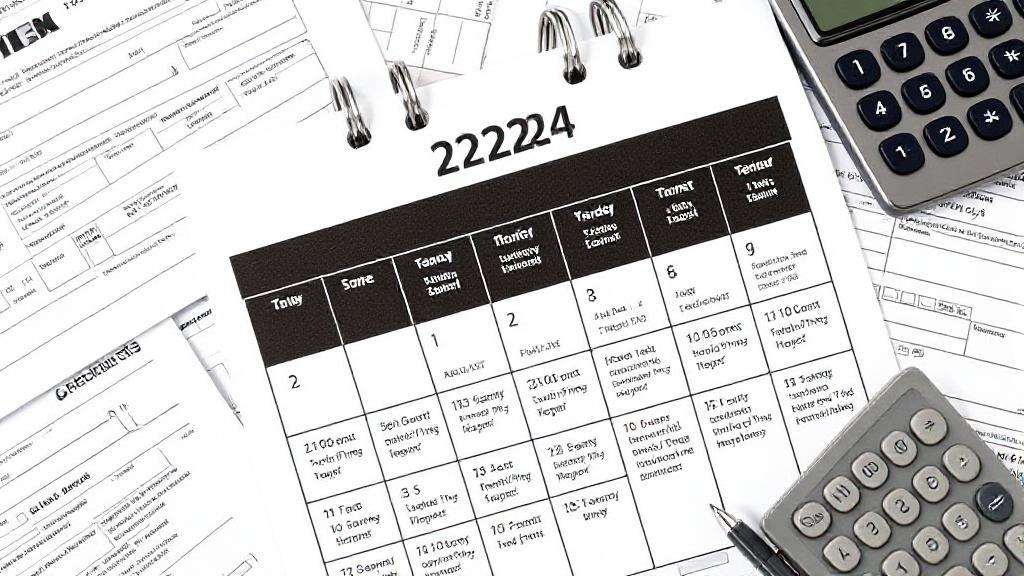Important Tax Filing Dates for 2024
January Deadlines
- January 16: Fourth quarter 2023 estimated tax payment due
- January 29: IRS begins accepting and processing 2023 tax returns
- January 31: Deadline for employers to send W-2s and 1099s to employees and contractors
March Deadlines
| Business Type | Due Date |
|---|---|
| S Corporations | March 15, 2024 |
| Partnerships | March 15, 2024 |
April Deadlines
- April 15: Standard filing deadline for individual tax returns (Form 1040)
- April 15: First quarter 2024 estimated tax payment due
- April 15: Last day to make 2023 IRA contributions
- April 15: Deadline to file Form 4868 for automatic extension
- April 15: C Corporation tax returns due (calendar-year corporations)
- April 15: Estates and Trusts (Form 1041) due
Additional Quarterly Payment Deadlines
- June 17: Second quarter 2024 estimated tax payment due
- September 16: Third quarter 2024 estimated tax payment due
Extended Deadline
- October 15: Final deadline for those who requested an extension
Special Circumstances
State-Specific Deadlines
Due to Patriots' Day, taxpayers in Maine and Massachusetts have until April 17, 2024, to file their federal tax returns.
Disaster Area Residents
The IRS provides extended deadlines for residents in federally declared disaster areas. Check the IRS disaster relief page for updates.
Filing Tips and Information
Extension Requests
"If you fail to file your tax return by the due date, you may face a failure-to-file penalty. The penalty is usually 5% of the unpaid taxes for each month or part of a month that a return is late."
Remember that while an extension gives you until October 15 to file, it does not extend the time to pay any taxes owed.
Electronic Filing Options
The IRS encourages electronic filing through:
Tips for a Smooth Tax Season
- Organize documents early
- Keep organized records throughout the year
- Consider electronic filing for faster processing
- Set calendar reminders for important deadlines
- Submit well before deadlines to avoid technical issues
Best Practices
- Gather Documents Early: Collect W-2s, 1099s, and receipts for deductions well before filing
- Consider Professional Help: Use tax software or consult a tax professional for complex situations
- Stay Informed: Monitor the IRS website for tax law changes and updates
- Plan for Estimated Taxes: If you have income not subject to withholding, plan quarterly payments to avoid penalties
Remember that staying ahead of these deadlines helps avoid penalties and reduces stress during tax season. Consider working with a qualified tax professional if you need assistance meeting these important deadlines.
